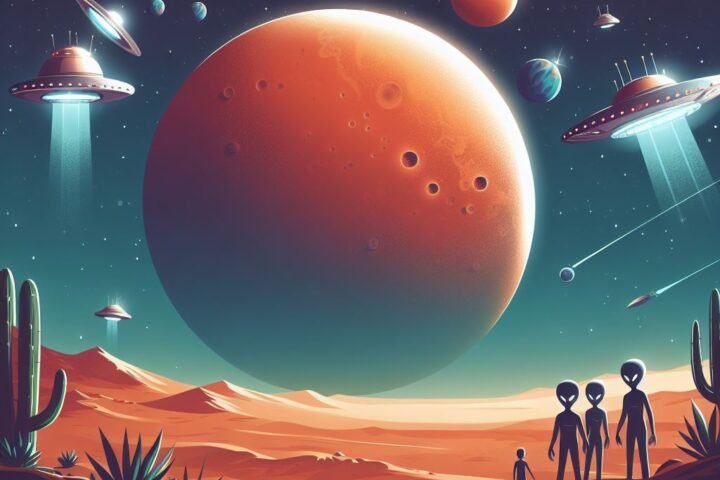Is Humanity Not the First Intelligent Civilization on Earth?
For centuries, humans have believed that we are the only intelligent species to have ever inhabited the Earth. But what if this is not the case? What if there were other intelligent civilizations that existed before us, but have since disappeared or gone underground? This is the idea behind the Silurian Hypothesis, a controversial theory that challenges our assumptions about the history of our planet.
The Silurian Hypothesis is based on the idea that there may have been intelligent life on Earth long before humans ever existed. Specifically, it suggests that an advanced civilization may have existed during the Silurian period, which lasted from around 443 million to 419 million years ago. During this time, the Earth was very different from what it is today, with a much higher level of atmospheric oxygen and very different flora and fauna.
Proponents of the Silurian Hypothesis argue that this advanced civilization may have been driven underground or forced to retreat to remote areas due to some catastrophic event, such as a comet impact or a major volcanic eruption. They suggest that this civilization may have left behind traces of their technology and culture, but that these have been hidden or erased over time due to natural processes.
While the Silurian Hypothesis may sound like science fiction, it is actually based on real scientific data and observations. For example, there are many unexplained features of the Earth’s geology and biology that could potentially be explained by the presence of an advanced civilization in the past. These include unusual mineral formations, anomalous fossils, and mysterious artifacts that do not fit with our current understanding of the history of life on Earth.
Of course, the Silurian Hypothesis is not without its skeptics. Many scientists argue that there is no concrete evidence to support the idea of an advanced civilization existing during the Silurian period, and that many of the features that proponents of the hypothesis point to can be explained by other, more mundane processes.
Regardless of whether the Silurian Hypothesis is true or not, it remains a fascinating and thought-provoking idea that challenges our assumptions about the history of our planet and our place in the universe. It is a reminder that, as much as we think we know about the world around us, there is still so much we have yet to discover and understand.


